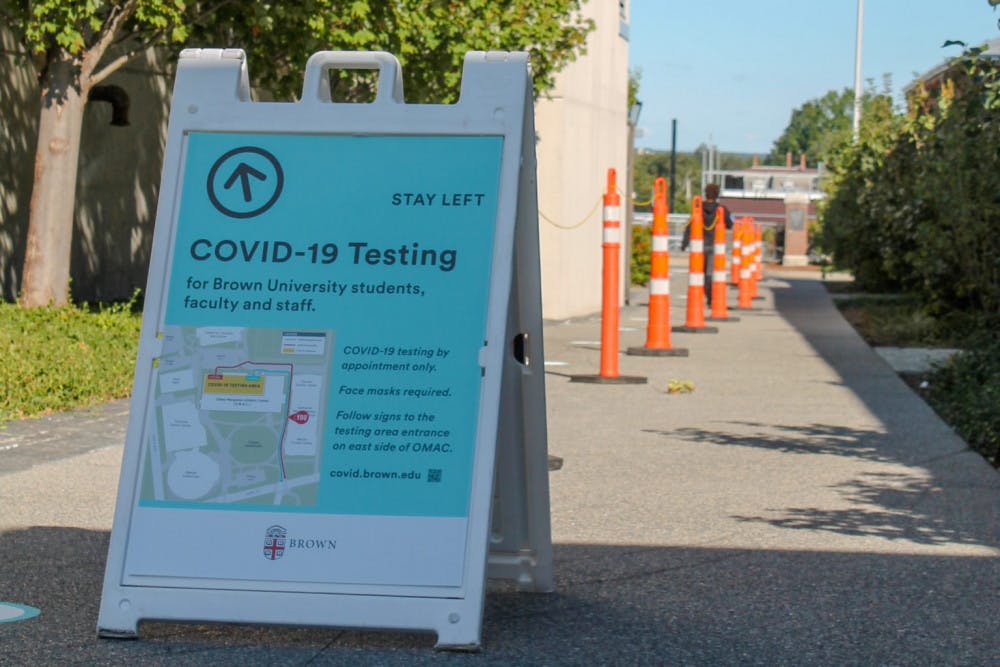Almost a third of total students — 31.1 percent — and 44.7 percent of employees have documented their COVID-19 vaccinations with the University as of May 21, according to Executive Vice President for Planning and Policy Russell Carey ’91 MA’06.
Of the students currently on campus, 44.6 percent have uploaded their vaccine cards and 47.1 percent of on-campus employees have documented theirs. But, Carey added, “we expect that many more people are vaccinated than (those who) have just uploaded their cards.”
President Christina Paxson P’19 announced in an email Thursday that all on-campus community members must be vaccinated by July 1 unless they have medical or religious exemptions under applicable law, The Herald previously reported.
The University moved up the vaccination deadline because the vaccine supply has increased since early April, when Brown first announced that all students and faculty were required to be vaccinated to return for the fall semester, Carey said. “At that time, the eligibility and access to vaccines particularly (for) college-aged students was very low, and it wasn't clear when it would become more available.”
“That's changed dramatically. Anyone connected with the Brown community can get a vaccine readily, and we felt that that July 1 deadline was realistic,” Carey said, adding that “we really want to underscore the importance of getting vaccinated and the importance of documenting it because that's the key (to) returning to more normal operations.”
Once the University receives documentation of “near-universal vaccination levels, which we think we can do very quickly,” Carey said, “we can make changes more broadly” to University COVID-19 guidelines.
COVID-19 rates have remained low on campus since students’ arrival for the summer term and with hybrid and in-person classes having started May 19, Carey said.
During Quiet Period from May 9 to 15, two employees tested positive for COVID-19, according to Carey. Following the shortened Quiet Period, one University community member, a student, tested positive for COVID-19 through the asymptomatic testing program as of May 22, according to the Healthy Brown COVID-19 Dashboard. Over the past four weeks, there have been a total of three confirmed positive student cases, Carey said.
During this period of “in and out” with students moving out of campus and returning after the two-week break between the spring and summer terms, “we had very low levels of positivity in general, and very low among students,” Carey said.
While students and faculty currently on campus must continue getting tested twice per week through the University’s asymptomatic testing program, Carey noted that Brown is “certainly hoping to reduce testing frequency” and will have “more information about testing frequency soon.”
The University is actively working on revising the campus safety policy and allowing increasing levels of activity on campus, Carey said. “We’re in this transition period … where people can already do more and more things but still have to exercise a level of caution,” he said.
Despite the low number of COVID-19 cases on campus, an area of concern is the potential impacts of virus variants, Carey said. The ongoing severity of the pandemic in other countries demonstrates the virus’ ability to “mutate” and “have impacts that people don’t necessarily expect.”
“I think that continued vigilance about basics, like hand washing and staying home if you’re sick and social distancing, even as that starts to diminish, are going to be really important,” Carey said. “We're probably just like everybody else, cautiously optimistic.”
The University’s dual role as an employer and a residential community may make campus guidance and policies appear more restrictive than the Centers for Disease Control and Prevention’s or the Rhode Island Department of Health’s recommendations, Carey said.
Currently, RIDOH recommends that fully vaccinated individuals wear masks in businesses that require them, public transportation, prisons and correctional facilities among few other areas. For others, they recommend continued mask wearing indoors and within three feet of others outside.
“We are moving in the same directions; we just may not all move at the same pace,” Carey said.
Gabriella was a Science & Research editor at The Herald.





